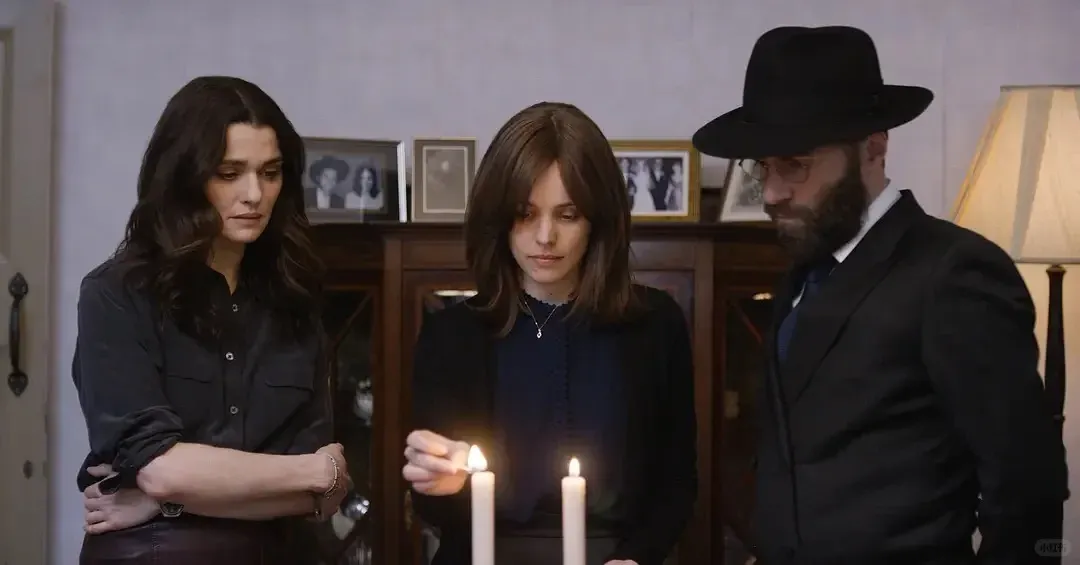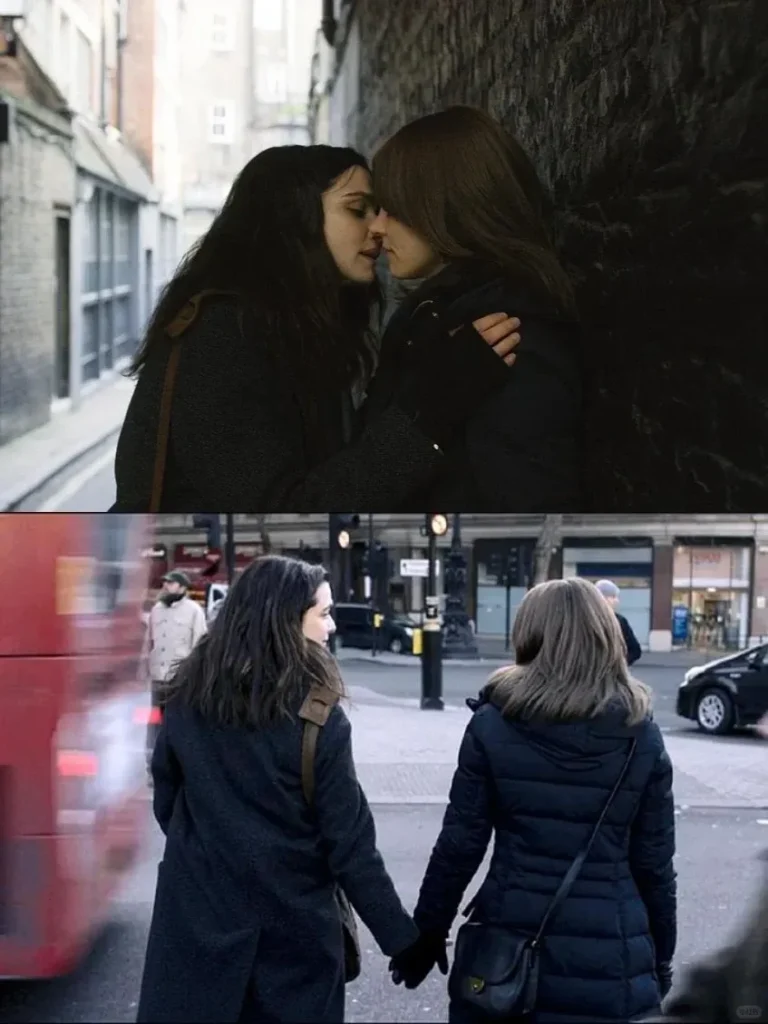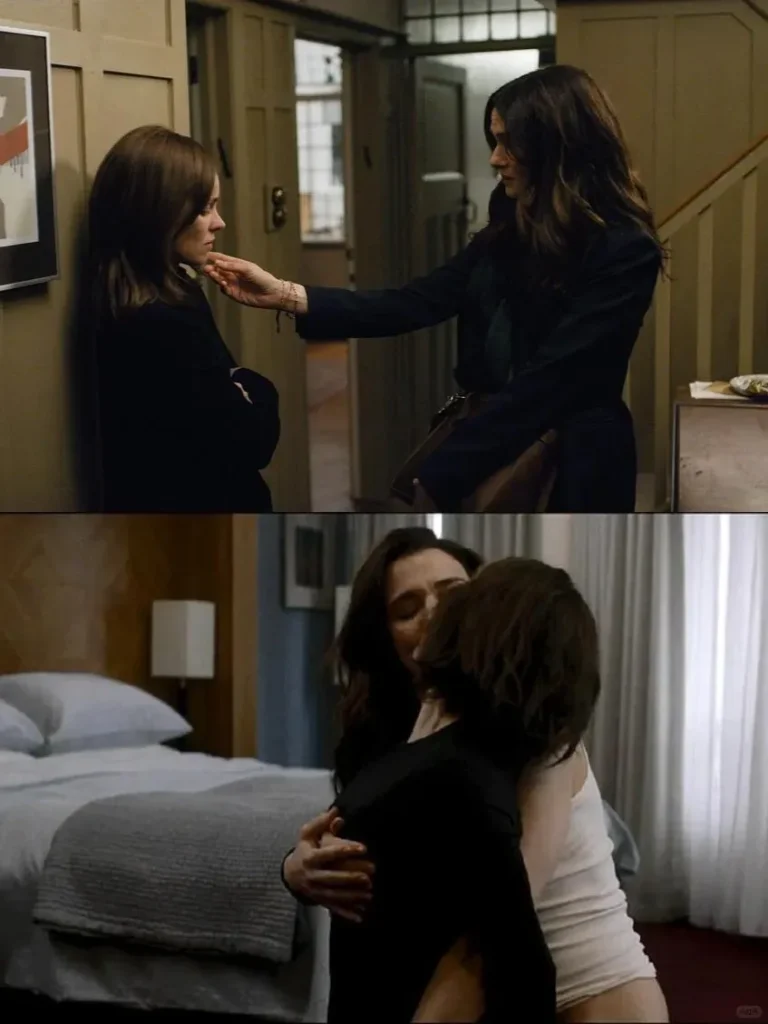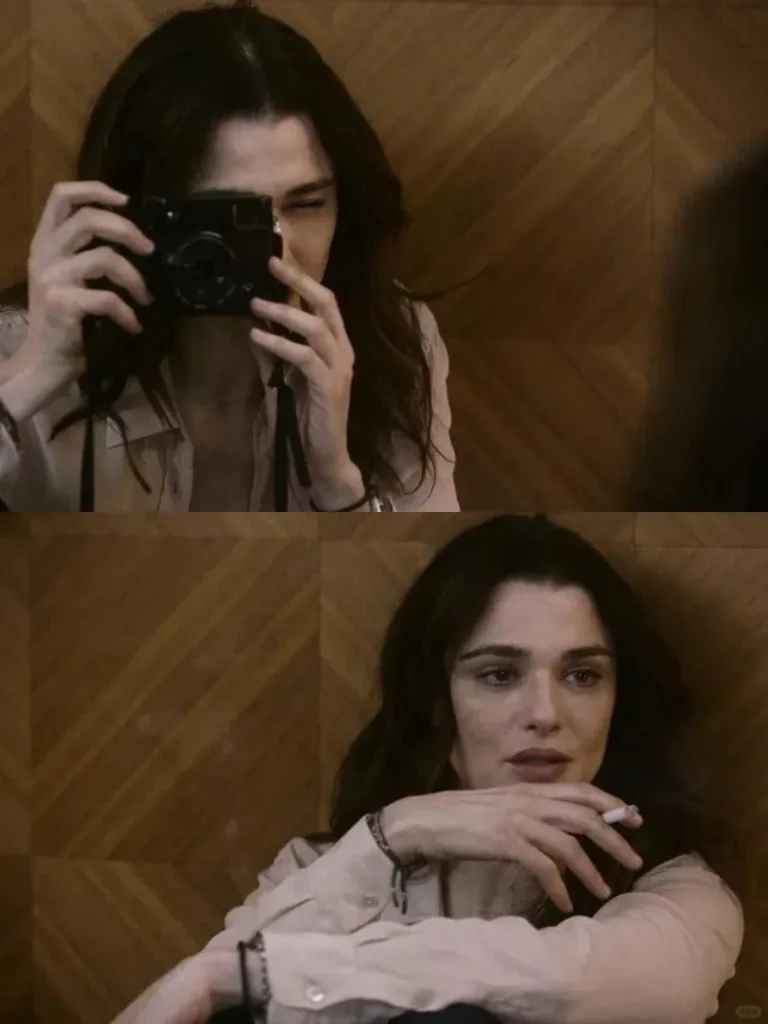Rachel Weisz and Rachel McAdams star in Disobedience, a lesbian drama based on Naomi Alderman’s first book. The movie takes place in an Orthodox Jewish community in London and looks at forbidden desire, religious tradition, and the price of freedom. Rachel Weisz bought the rights and made the movie herself. She was looking for a tale about two women in particular.

Ronit (Rachel Weisz), a New York photographer estranged from her Orthodox Jewish roots, returns home after her father’s death. Once banished for her romance with childhood friend Esti (Rachel McAdams), she finds Esti now married to Dovid (Alessandro Nivola), her father’s protégé. Despite years apart, Ronit and Esti’s suppressed desire quickly resurfaces.
Their relationship forces Esti to confront the suffocating expectations of faith and marriage, while Ronit wrestles with her longing for both freedom and belonging. Dovid, caught between tradition and compassion, must face his own compromises.


Ronit is the rebellious daughter of a rabbi, exiled for her sexuality, now a photographer in New York. Returning to Hendon forces her to face her past and her lost love.
Rachel Weisz
Rachel Weisz, an Oscar-winning actress (The Constant Gardener), was also producer of Disobedience. She deliberately chose this project to center two women’s voices and delivers one of her most nuanced performances.

Esti is Ronit’s childhood friend, now married to Dovid. Quiet, devout, but with a hidden fire, she struggles between faith and selfhood.
Rachel McAdams
Rachel McAdams (The Notebook, Spotlight) transforms Esti into a complex, layered character. Her performance earned wide praise for showing repression, awakening, and courage all at once.
Director

Sebastián Lelio
Sebastián Lelio is a Chilean filmmaker best known for intimate, character-driven stories about identity and freedom. Before Disobedience, he directed the Academy Award–winning A Fantastic Woman (2017), which put trans representation on the global stage. Lelio’s style is defined by compassion for outsiders and a refusal to simplify them into stereotypes. With Disobedience, his first English-language film, he shifted focus to an Orthodox Jewish community, proving that his empathy for marginalized voices transcends cultural boundaries.
BEST SCENES
The much-discussed love scene between Ronit and Esti—raw, unfiltered, and intimate. Instead of catering to voyeurism, it becomes a reclamation of lesbian desire, uniquely theirs. Equally unforgettable is Esti’s confession: “It has always been this way with me. No other way. I will never be any different.”
Disobedience Review
Review




Story
Unlike the novel, which leans heavily on biblical allegories and a more judgmental view of Ronit, the film focuses on the inner struggles of three complex characters. Religion is not demonized, men are not simplified into villains—every tension stems from the characters’ own choices. This makes the story less about rebellion for rebellion’s sake, and more about the intimate, human cost of love and disobedience.
Acting
Rachel Weisz plays Ronit with a spiky vulnerability: rebellious on the surface, but fragile underneath. McAdams gives Esti a quiet strength—her journey from passive conformity to claiming her own desire is the film’s true arc. Alessandro Nivola makes Dovid unexpectedly sympathetic, embodying a gentleness rare in this type of triangle. Their combined performances ground the drama in humanity rather than melodrama.
Chemistry
The chemistry between Weisz and McAdams is electric yet deeply emotional. Their kisses and the infamous “spit scene” are not stylized for the male gaze but feel raw, desperate, and intimate—an expression of old love reigniting in defiance of silence. You believe in their history and in their pain.
Production
Sebastián Lelio directs with restraint, letting glances, silences, and religious rituals carry symbolic weight. The muted color palette mirrors the suffocating community, while the soundtrack (Lovesong during a pivotal scene) underlines moments of longing. Compared to Alderman’s novel, the film is more compassionate, more character-driven, and visually elegant.
Ending
The ending departs from the book. Esti does not simply collapse under tradition but asserts her own voice, asking for freedom. Ronit, finally able to say “I love you,” leaves Hendon not in exile but with recognition. Dovid, too, evolves—choosing compassion over authority. The open-ended finale allows space for hope rather than punishment.
💬 My Take
For me, the soul of Disobedience is Esti. She begins the film bound by duty, yet her journey is one of the most powerful acts of resistance—simply daring to want, and to speak it aloud. Ronit may embody rebellion, but Esti embodies quiet bravery.
What lingers isn’t just the passion of their love scenes, but the tenderness of moments like Esti holding Ronit’s hand on the street, or Ronit photographing Esti as if to preserve her forever. To me, this film isn’t only about disobedience to tradition—it’s about obedience to love.
How the Film Rewrites the Novel
Naomi Alderman’s Disobedience (2006) and Sebastián Lelio’s 2017 film tell the same story on the surface—a woman returning to her Orthodox Jewish community and rekindling a forbidden love—but they live in very different registers.
In the novel, Ronit is written with sharp edges, often self-absorbed, even entangled in an affair with a married boss. Her love for Esti feels blurred, more symbolic than lived. Esti, meanwhile, is portrayed as a woman who longs but ultimately conforms, staying in Hendon with Dovid and even raising children. The book uses heavy biblical allegories—David and Jonathan, punishment and obedience—turning lesbian desire into a metaphor for rebellion rather than a tender reality.
The film, however, softens and humanizes everything. Ronit becomes a photographer, a character you can empathize with rather than judge. Rachel Weisz plays her not just as a cynic but as someone broken, aching for belonging. Esti, embodied by Rachel McAdams, is given the strongest arc: she admits openly, “It has always been this way with me,” and demands her right to choose freedom. Dovid, who in the book is a rigid symbol of tradition, becomes gentle and conflicted—a man who ultimately sets Esti free.
Even the ending is rewritten. Where the novel punishes Esti with resignation, the film offers a bittersweet hope: Ronit finally says “I love you,” Esti claims her voice, and Dovid learns compassion. Religion isn’t framed as the villain; silence is. Lelio shifts the focus from allegory to character, from punishment to possibility.
For me, this change makes all the difference. The book often felt like it was arguing with theology more than telling a love story. The film, by contrast, lets Ronit and Esti’s chemistry breathe—it’s there in every glance, every hesitation, and, yes, in that infamous love scene that critics still debate. Where the novel left me doubting Ronit’s feelings, the film never let me question them. It doesn’t matter if Ronit is “gay for Esti” or bisexual; what matters is that Esti is her great love.
That’s why I find the film far more moving. It doesn’t just disobey tradition—it obeys the heart.
Disobedience Information
🏆 Awards & Recognition
Premiered at the Toronto International Film Festival (2017), earning praise for the performances of Rachel Weisz and Rachel McAdams.
Nominated for the GLAAD Media Award for Outstanding Film – Wide Release (2019).
Received critical acclaim for its sensitive portrayal of faith and sexuality, often highlighted as one of the best lesbian films of the 2010s.
While it didn’t sweep major awards like Lelio’s A Fantastic Woman, the film cemented his reputation for crafting nuanced LGBTQ+ stories.
